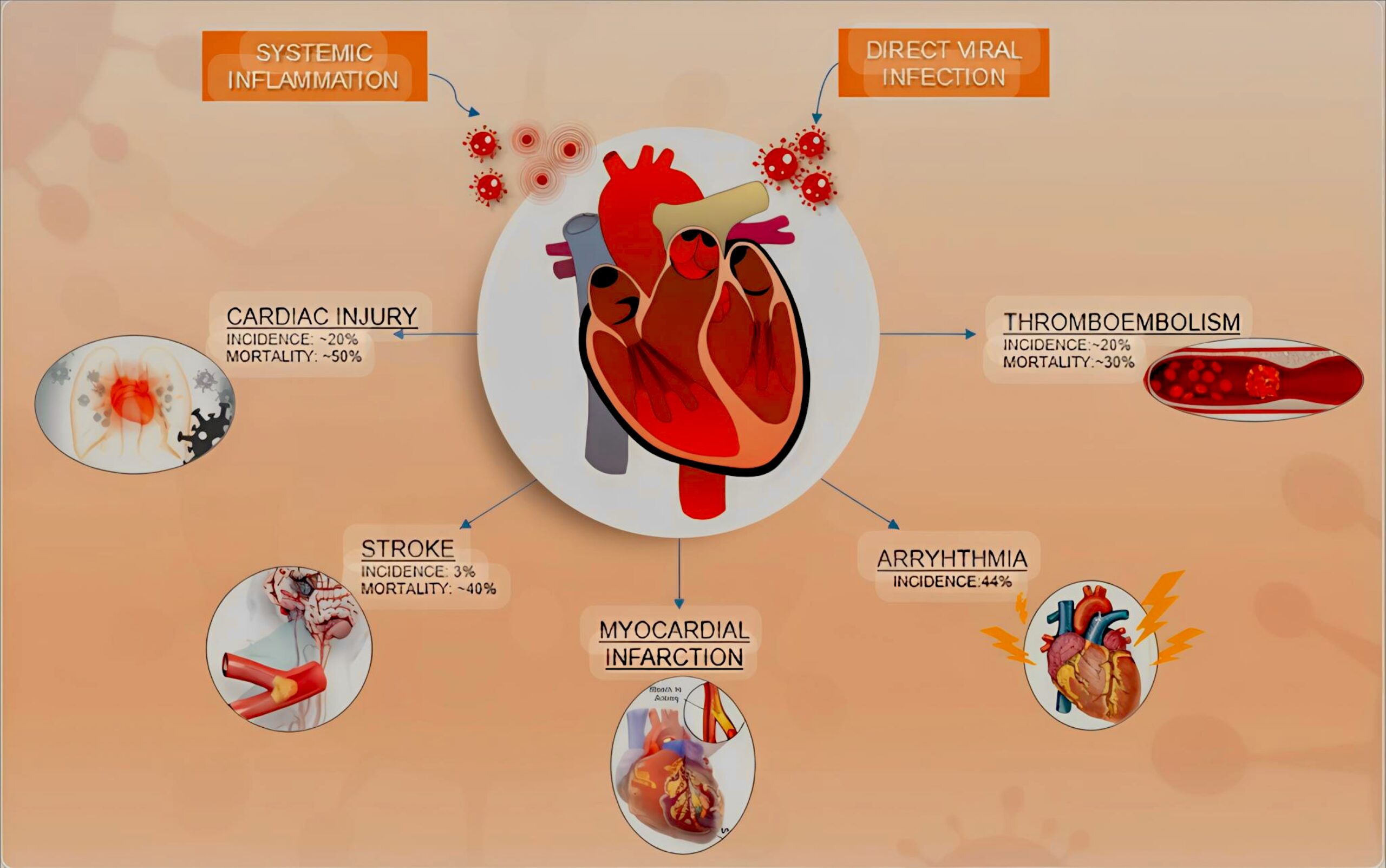Introduction
COVID-19 doesn’t just affect the lungs—it can also have long-term effects on the heart. Studies show that even mild cases may increase the risk of heart disease, blood clots, and inflammation months after recovery.
If you’ve had COVID-19, it’s crucial to monitor your heart health and take preventive steps. In this blog, we’ll cover:
✅ How COVID-19 impacts the heart
✅ Warning signs of post-COVID heart issues
✅ Best ways to protect your cardiovascular healthm
✅ When to see a doctor
How COVID-19 Affects the Heart
Research reveals that COVID-19 can cause:
- Myocarditis (heart inflammation) – Leading to chest pain and fatigue.
- Blood clots – Increasing stroke and heart attack risks.
- Arrhythmias (irregular heartbeat) – Due to viral damage or stress.
- Worsening of existing heart conditions – Like hypertension or coronary artery disease.
A 2023 study in Nature Cardiovascular Research found that COVID survivors had a higher risk of heart problems up to a year after infection, even if they weren’t hospitalized.
Post-COVID Heart Symptoms to Watch For
Seek medical attention if you experience:
🔴 Chest pain or tightness
🔴 Palpitations or irregular heartbeat
🔴 Severe fatigue during mild activity
🔴 Shortness of breath (not improving with rest)
🔴 Swelling in legs (possible blood clot sign)
Note: Some people develop “Long COVID,” where heart-related symptoms persist for months.

How to Protect Your Heart After COVID-19
1. Get a Cardiac Check-Up
- Ask your doctor for an ECG, echocardiogram, or blood tests (like troponin) if you had severe COVID-19.
- Monitor blood pressure and cholesterol levels.
2. Ease Back Into Exercise
- If you had COVID-19, avoid intense workouts for at least 2–4 weeks.
- Start with light walking, yoga, or stretching before resuming heavy exercise.
3. Eat a Heart-Healthy Diet
- Focus on leafy greens, omega-3s (salmon, flaxseeds), and antioxidants (berries, nuts).
- Reduce processed foods, salt, and sugar to lower inflammation.
4. Stay Hydrated & Avoid Alcohol/Smoking
- Dehydration thickens blood, raising clot risks.
- Smoking and alcohol worsen heart strain.
5. Manage Stress & Sleep Well
- Chronic stress increases cortisol, harming the heart.
- Aim for 7–9 hours of sleep to support recovery.
When to See a Cardiologist
Consult a specialist if:
⚠ You had severe COVID-19 (hospitalized or needed oxygen).
⚠ You feel new heart-related symptoms (palpitations, dizziness).
⚠ You have preexisting heart disease, diabetes, or high blood pressure.
Final Thoughts
COVID-19’s impact on the heart can be silent but serious. By staying alert to symptoms, eating well, and getting proper screenings, you can reduce risks and recover safely.
